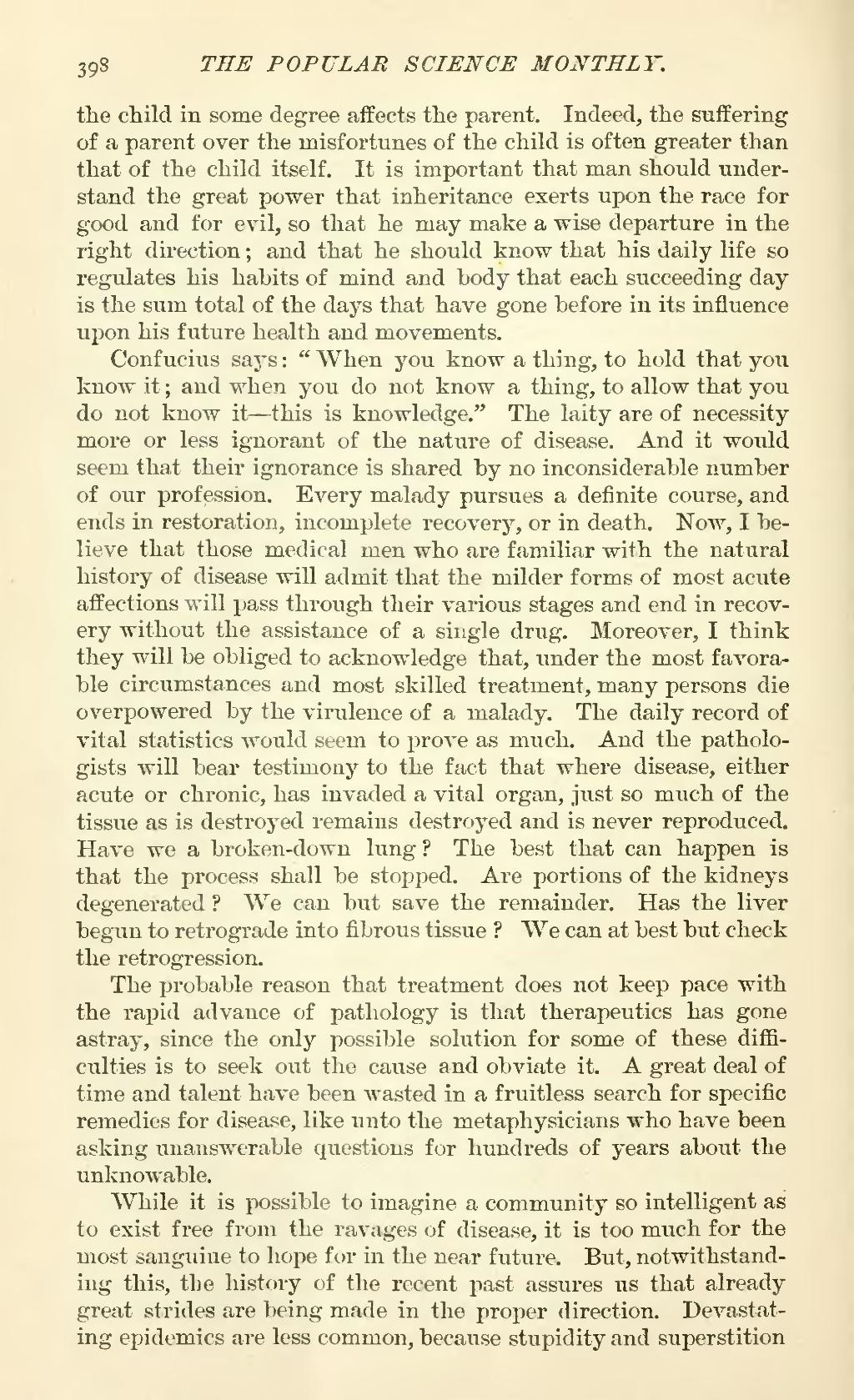the child in some degree affects the parent. Indeed, the suffering of a parent over the misfortunes of the child is often greater than that of the child itself. It is important that man should understand the great power that inheritance exerts upon the race for good and for evil, so that he may make a wise departure in the right direction; and that he should know that his daily life so regulates his habits of mind and body that each succeeding day is the sum total of the days that have gone before in its influence upon his future health and movements.
Confucius says: "When you know a thing, to hold that you know it; and when you do not know a thing, to allow that you do not know it—this is knowledge." The laity are of necessity more or less ignorant of the nature of disease. And it would seem that their ignorance is shared by no inconsiderable number of our profession. Every malady pursues a definite course, and ends in restoration, incomplete recovery, or in death. Now, I believe that those medical men who are familiar with the natural history of disease will admit that the milder forms of most acute affections will pass through their various stages and end in recovery without the assistance of a single drug. Moreover, I think they will be obliged to acknowledge that, under the most favorable circumstances and most skilled treatment, many persons die overpowered by the virulence of a malady. The daily record of vital statistics would seem to prove as much. And the pathologists will bear testimony to the fact that where disease, either acute or chronic, has invaded a vital organ, just so much of the tissue as is destroyed remains destroyed and is never reproduced. Have we a broken-down lung? The best that can happen is that the process shall be stopped. Are portions of the kidneys degenerated? We can but save the remainder. Has the liver begun to retrograde into fibrous tissue? We can at best but check the retrogression.
The probable reason that treatment does not keep pace with the rapid advance of pathology is that therapeutics has gone astray, since the only possible solution for some of these difficulties is to seek out the cause and obviate it. A great deal of time and talent have been wasted in a fruitless search for specific remedies for disease, like unto the metaphysicians who have been asking unanswerable questions for hundreds of years about the unknowable.
While it is possible to imagine a community so intelligent as to exist free from the ravages of disease, it is too much for the most sanguine to hope for in the near future. But, notwithstanding this, the history of the recent past assures us that already great strides are being made in the proper direction. Devastating epidemics are less common, because stupidity and superstition

